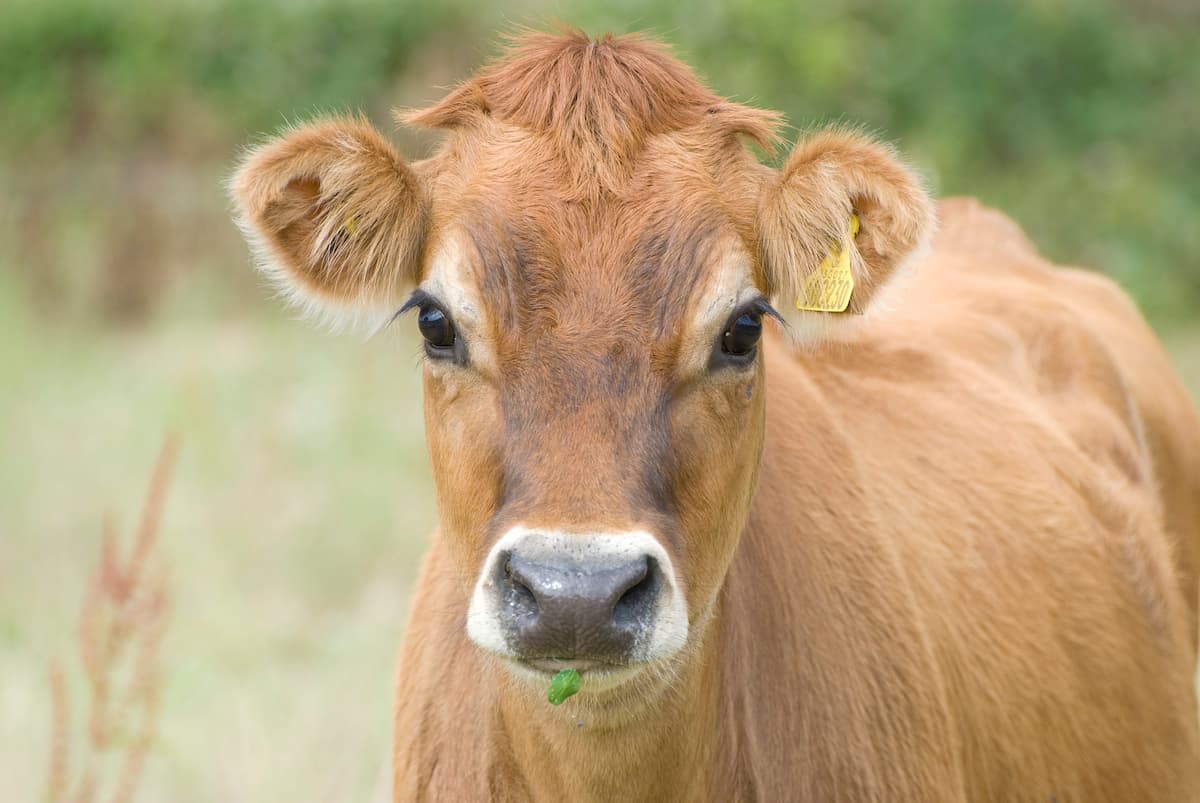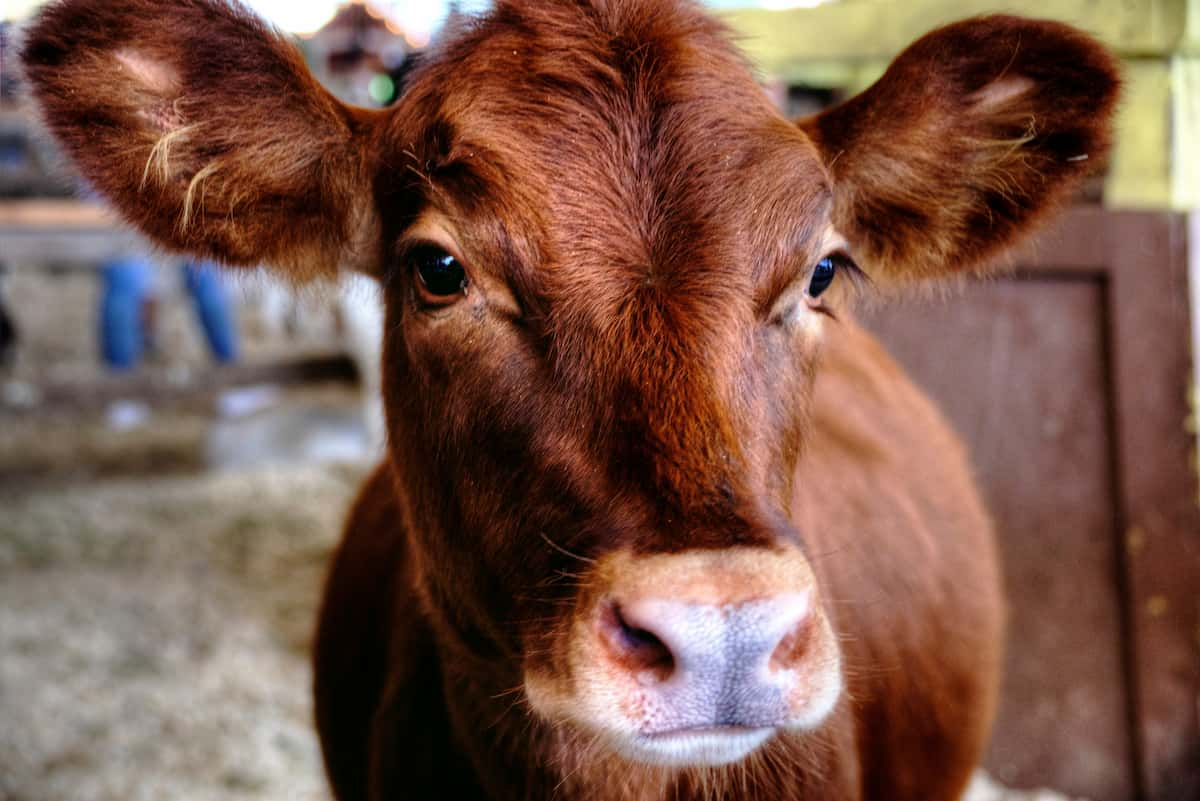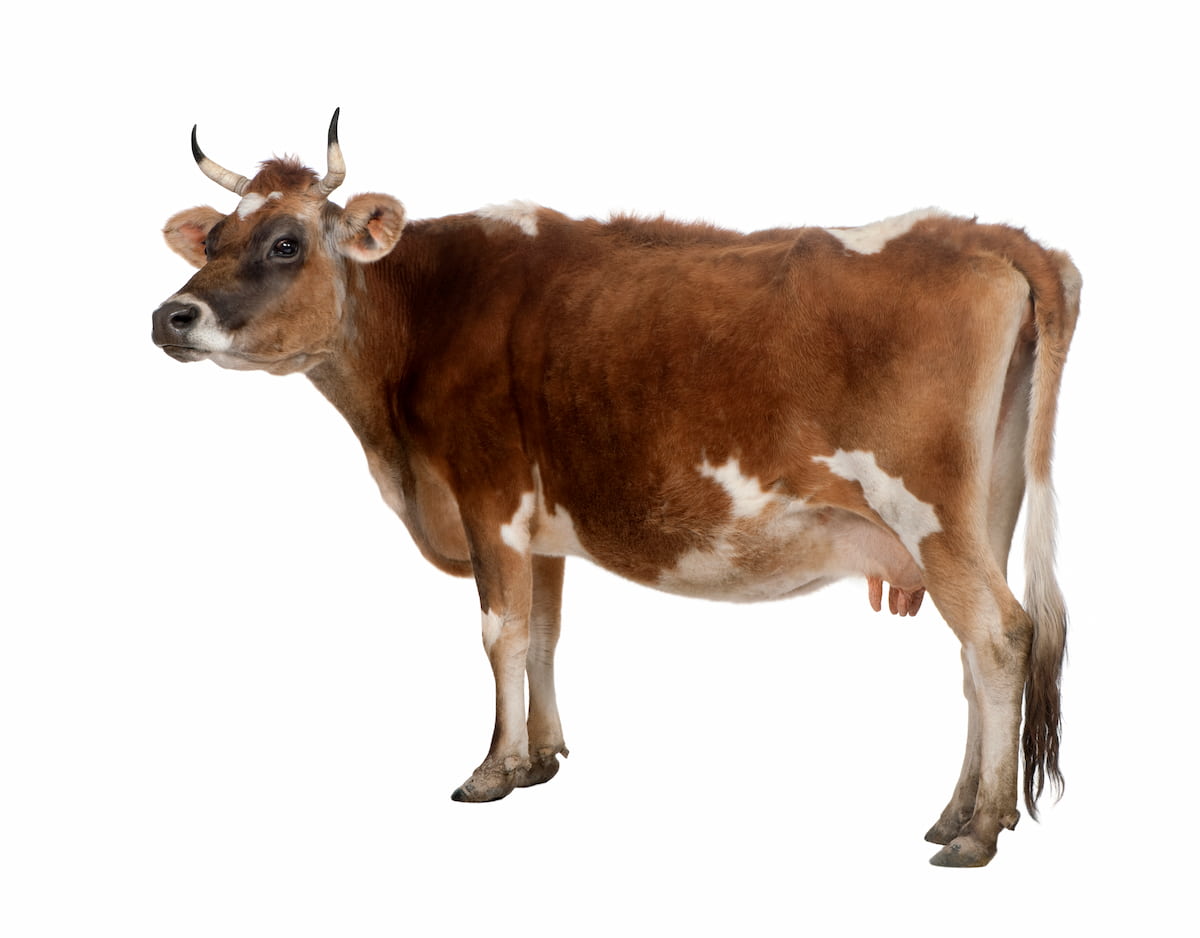Starting a Jersey cow farm can be a challenging but rewarding venture. The Jersey breed is known for its high-quality milk production, making it a popular choice among dairy farmers.

Jersey Cow Breed and Characteristics
Jersey cows are a breed of dairy cattle that originated on the Isle of Jersey, located off France’s coast. These cows are known for their distinct golden color and ability to produce high-quality milk rich in butterfat. Jersey cows are popular among dairy farmers due to their docile temperament, easy calving, and efficiency in converting feed into milk. In this essay, we will discuss the characteristics of Jersey cows in detail.
Physical Characteristics
Jersey cows are small to medium-sized animals with a weight range of 800-1200 pounds. They are light golden or fawn in color, and their coats are typically smooth and glossy. They have small, refined heads with a straight profiles, and their eyes are large and expressive. The ears of Jersey cows are small, rounded, and set close together. The breed is known for its fine, soft hair, which helps them to stay cool in hot weather. Their udders are also smaller in size and have a round shape.
Milk Production
Jersey cows are known for their high milk production, characterized by their butterfat, protein, and calcium richness. The average milk production per cow per year is between 14,000 and 16,000 pounds. This is less than other dairy breeds like Holstein, but the milk is higher in butterfat (4.8%) and protein (3.9%). The high butterfat content makes Jersey milk ideal for cheese, butter, and cream production.
Temperament
Jersey cows are known for being easy to handle and manage because they are calm. They are friendly, curious, and enjoy human interaction. This breed is also known for its longevity and can produce milk well into its teenage years. They have a strong maternal instinct, making them excellent mothers, and their calves are typically small and easy to calve.
Adaptability
Jersey cows are adaptable to a wide range of climates and environments. They are known for their heat tolerance, ideal for tropical and subtropical regions. They are also hardy and can tolerate cold temperatures and inclement weather. However, they do require good quality feed to maintain their milk production.
How to Start Jersey Cow Farming in 10 Steps
Market Research
Before starting your Jersey cow farm, it’s essential to conduct thorough market research. This involves analyzing the demand for Jersey cow milk in your local area and identifying potential buyers. You should also research the costs of setting up a Jersey cow farm, including purchasing land, equipment, and cows.
Business Plan
Based on your market research, you should develop a comprehensive business plan. Your business plan should include a mission statement, financial predictions, marketing strategy, and Jersey cow farm management plan.
In case you missed it: How to Start Brown Swiss Cow Farm in 10 Steps: Characteristics and Business Plan

Choose a Suitable Location
The location of your Jersey cow farm is critical to its success. You should choose a location with plenty of pasturelands, easy access to water, and good soil quality. You should also consider the proximity of your farm to potential buyers and suppliers.
Permits and Licenses
Before starting your Jersey cow farm, you must obtain any necessary permits and licenses from your local government. This may include zoning permits, building permits, and licenses to sell dairy products.
Purchase Equipment and Supplies
To start your Jersey cow farm, you must purchase various equipment and supplies, including fencing, watering systems, milking machines, and feeders. You should also invest in high-quality hay and feed to ensure your cows receive a balanced diet.
Purchase Jersey Cows
The Jersey breed is known for its high-quality milk production, making it a popular choice among dairy farmers. Choosing healthy, well-bred cows with good genetics is essential when purchasing Jersey cows. You should also ensure that the cows have been vaccinated and are disease-free.
Provide Proper Care and Management
This includes providing a clean and comfortable living environment, feeding them a balanced diet, and ensuring they receive regular veterinary care.
Establish a Milking Routine
Establishing a regular milking routine is essential for maximizing milk production and maintaining the health of your Jersey cows. You should milk your cows simultaneously daily and ensure the milking equipment is clean and well-maintained.
Develop a Marketing Strategy
You’ll need to develop a marketing strategy to sell your Jersey cow milk. This may include selling directly to consumers, selling to local retailers, or selling to larger dairy processors. You should also consider creating a brand for your Jersey cow milk and developing a marketing campaign to promote your products.
Continuously Monitor and Improve
To ensure the ongoing success of your Jersey cow farm, it’s essential to monitor and improve your operations continuously. This may involve tracking milk production, monitoring cow health, and assessing your business performance regularly. You should also stay up-to-date with industry trends and technologies to ensure your Jersey cow farm remains competitive.
In case you missed it: How to Start Guernsey Cow Farming in 10 Steps: Characteristics and Business Plan

What is the Cost of One Jersey Cow?
On average, the cost of a Jersey cow can range from $1,500 to $3,500, although some cows may be sold for as little as $1,000 or as much as $10,000 or more. It’s important to consider the long-term costs of owning a Jersey cow, including feed, veterinary care, and equipment, when budgeting for your Jersey cow farm. Additionally, it’s important to invest in healthy, well-bred cows with good genetics to ensure your herd’s ongoing productivity and profitability.
Conclusion
Starting a Jersey cow farm requires careful planning, hard work, and dedication. However, with the right approach, you can build a successful and profitable business that provides high-quality milk to your customers.
- Feed Your Flock for Less: Top 10 Tips to Save on Chicken Feed
- Ultimate Guide to Ossabaw Island Hog: Breeding, Raising, Diet, and Care
- Hatching Answers: The Top 10 Reasons Your Chickens Aren’t Laying Eggs
- Eggs and Economics: Breaking Down the Cost of Raising Backyard Chickens
- Defend Your Greens: Proven Methods to Keep Iguanas Out of Your Garden
- Ultimate Guide to Cinnamon Queen Chicken: A Comprehensive Guide for Beginners
- Ultimate Guide to California Tan Chicken: Breeding, Raising, Diet, Egg-Production and Care
- Ultimate Guide to Marsh Daisy Chicken: Breeding, Raising, Diet, and Care
- 10 Types of Chicken Farming Businesses You Can Start for Profits